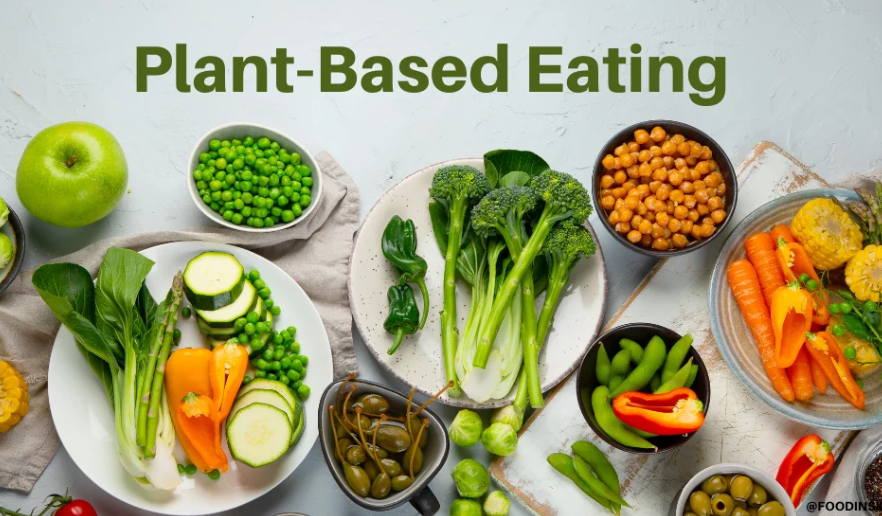In recent years, the plant-based diet has surged in popularity, driven by its numerous health benefits, environmental sustainability, and accessibility. Many people are shifting from animal-based diets to plant-based options, exploring the world of nutrient-dense, plant-centered meals that promote health and wellness.
This guide offers a comprehensive overview of the plant-based diet, including benefits, food lists, menu ideas, and answers to common questions. Whether you’re considering a 30-day plant-based diet plan or are simply interested in learning more, this article will provide all the information you need.
What is a Plant-Based Diet?
A plant-based diet emphasizes foods primarily from plants. This includes fruits, vegetables, grains, nuts, seeds, and legumes. While a plant-based diet can include some animal products, it minimizes them, focusing instead on whole, minimally processed plant foods. Unlike vegetarian or vegan diets, which eliminate animal products, plant-based diets allow some flexibility, making them more approachable for beginners.
Plant-Based Diet Food List
A balanced plant-based diet food list can provide all the essential nutrients required for a healthy lifestyle. Here is a breakdown of food categories and examples:
| Category | Examples |
|---|---|
| Fruits | Apples, bananas, berries, oranges, mangoes |
| Vegetables | Spinach, broccoli, carrots, bell peppers |
| Whole Grains | Brown rice, quinoa, oats, barley |
| Legumes | Lentils, chickpeas, black beans, soybeans |
| Nuts and Seeds | Almonds, chia seeds, flaxseeds, walnuts |
| Plant-Based Proteins | Tofu, tempeh, edamame, seitan |
| Healthy Fats | Avocado, olive oil, coconut oil, hemp seeds |
This plant-based diet menu can be modified and expanded to suit individual tastes and nutritional needs. It is essential to include a variety of foods to ensure balanced nutrient intake.
Immediate Benefits of a Plant-Based Diet
Adopting a plant-based diet can bring both immediate and long-term health benefits. Some of the immediate benefits of a plant-based diet include:
- Improved Digestion: Plant-based foods are rich in fiber, which promotes healthy digestion and helps prevent constipation.
- Increased Energy Levels: With a balanced intake of fruits, vegetables, and whole grains, you may experience a natural boost in energy.
- Weight Management: Plant-based diets are typically lower in calories, which can aid in weight loss or management.
- Reduced Inflammation: Many plant foods are high in antioxidants, which help reduce inflammation in the body.
- Better Blood Sugar Control: The high fiber content in plant-based diets helps stabilize blood sugar levels.
- Immediate Healthier Skin: The vitamins and antioxidants in fruits and vegetables can help improve skin health.
Plant-Based Diet Benefits
The plant-based diet benefits extend far beyond initial health improvements. Here are some long-term advantages of following a plant-based lifestyle:
- Lower Risk of Chronic Diseases: Studies show that plant-based diets can lower the risk of heart disease, type 2 diabetes, and certain types of cancer.
- Enhanced Heart Health: By reducing cholesterol intake and increasing fiber, plant-based diets are beneficial for heart health.
- Improved Mental Health: Diets rich in fruits, vegetables, and healthy fats support cognitive function and mental well-being.
- Stronger Immune System: Plant foods are loaded with essential vitamins, minerals, and antioxidants, which strengthen the immune system.
- Environmental Impact: Plant-based diets have a significantly lower carbon footprint compared to animal-based diets, making them more sustainable.
30-Day Plant-Based Diet Plan for Beginners
For those new to plant-based eating, a 30-day plant-based diet plan can help ease the transition. Here’s a simple guide:
Week 1: Increase Fruits and Vegetables
- Begin by adding more fruits and vegetables to each meal.
- Incorporate leafy greens, berries, and other colorful produce.
Week 2: Replace Processed Foods
- Gradually replace processed foods with whole grains and legumes.
- Swap refined grains with whole grains like brown rice and quinoa.
Week 3: Reduce Animal Products
- Start reducing your intake of animal products, replacing them with plant-based proteins like tofu and tempeh.
Week 4: Explore Plant-Based Recipes
- Experiment with different plant-based recipes to add variety.
- Try new dishes, such as vegetable stir-fries, grain bowls, and salads with nuts and seeds.
By following this plant-based diet for beginners, you can gradually adopt a more plant-centered lifestyle without feeling overwhelmed.

Plant-Based Foods to Avoid
While a plant-based diet emphasizes wholesome foods, there are still some plant-based foods to avoid due to high sugar, salt, or fat content:
| Avoid These Foods | Reason |
|---|---|
| Processed Plant-Based Meats | Often high in sodium and preservatives |
| Refined Grains | Lack fiber and essential nutrients |
| Sugary Drinks and Snacks | High in added sugars and empty calories |
| Fried Foods | High in unhealthy fats and calories |
| Packaged Snacks | Often contain additives and excess salt |
Avoiding or minimizing these foods can help you maximize the health benefits of a plant-based diet.
Sample Plant-Based Diet Menu
Below is a sample plant-based diet menu to get you started:
| Meal | Food |
|---|---|
| Breakfast | Oatmeal with berries, chia seeds, and almond butter |
| Lunch | Quinoa salad with chickpeas, mixed greens, and avocado |
| Snack | Apple slices with peanut butter |
| Dinner | Stir-fried vegetables with tofu and brown rice |
| Dessert | Coconut yogurt with fresh fruit and nuts |
This menu provides a variety of flavors and nutrients, making plant-based eating enjoyable and balanced.
FAQs about Plant-Based Diets
1. What is the best plant-based diet food list?
The best plant-based diet food list includes fruits, vegetables, whole grains, legumes, nuts, seeds, and healthy fats. A variety of these foods can help provide balanced nutrition.
2. How can I start a 30-day plant-based diet plan?
Begin by gradually adding more plant-based foods to your meals each week. Follow the four-week plan above to make a smooth transition.
3. What are some plant-based foods to avoid?
Avoid or limit processed plant-based meats, refined grains, sugary drinks, fried foods, and packaged snacks, as they can be high in unhealthy fats, sugars, and sodium.
4. What are the immediate benefits of a plant-based diet?
Immediate benefits include improved digestion, better energy levels, and potential weight loss.
5. What are the long-term plant-based diet benefits?
Long-term benefits include a lower risk of chronic diseases, improved heart health, mental well-being, and a stronger immune system.
Conclusion
A plant-based diet can provide numerous health benefits, ranging from immediate improvements in digestion and energy levels to long-term prevention of chronic diseases. Whether you’re exploring a plant-based diet for beginners or looking to enhance your current eating habits, focusing on whole, plant-centered foods can lead to a healthier, more sustainable lifestyle. With the right plant-based diet menu and a mindful approach to food choices, you can experience both the immediate and lasting benefits of a plant-based diet.


